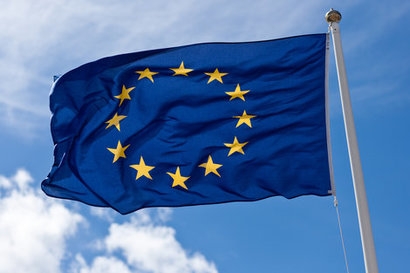
Under pressure from the public, and young people in particular, only a few Central European governments are still sitting on the fence. That means the EU is already able to make a decision on a Net Zero by 2050 target at the upcoming EU Heads of State and Government meeting in Brussels on 20-21 June. UN Secretary-General António Guterres has also urged the EU to step up its climate goals in a letter leaked by the media last week putting further pressure on EU leaders to reach an agreement already at the June European Council. He called for adopting a long-term vision for a carbon-neutral economy by 2050 and a commitment to increasing the EU's 2030 climate target to 55 percent reductions in emissions.
At least 17 countries currently vocally support the agreement on achieving net zero emissions by 2050: Belgium, Cyprus, Denmark, Finland, France, Germany, Greece, Italy, Latvia, Luxembourg, Malta, the Netherlands, Portugal, Slovenia, Spain, Sweden, the UK.
“EU leaders cannot neglect the UN Secretary General's call for more action to tackle the climate emergency” said Wendel Trio, Director of Climate Action Network (CAN) Europe. “The European Council needs to commit to achieving net zero emissions and increasing the 2030 climate target, in line with the Paris Agreement's objective to limit temperature rise to 1.5°C. Delaying this decision would leave the EU empty-handed at the September Climate Action Summit and be a major blow to the EU's international reputation as a climate leader.”
Anelia Stefanova, Programme Director of CEE Bankwatch Network added that it is only a few Eastern European countries like Bulgaria and Poland that still want to postpone a decision on increasing the EU’s climate action, despite the fact that it is in their best interest. First, their citizens are among those most affected by the climate crisis in Europe. Second, as they would benefit most from the new EU budget that offer significantly increased funding for climate action in support of going to net zero emissions.
Petr Doubravský, 17-year-old climate activist and Fridays for Future Czech Republic co-spokeperson said that leaders in Eastern Europe are still protecting the profits of the fossil fuel industry instead of protecting the future and young people’s lives.
Brook Riley, Head of EU Public Affairs at Rockwool International commented that the clock is ticking on climate change and that it is very clear that going climate neutral by 2050 is the only acceptable outcome. By adopting ambitious goals, EU leaders will cut risks and costs, and open the gates for many billions of euros of investment in Europe. This will improve living standards, accelerate job creation and foster sustainable economies. To keep temperature rise to safe levels, the EU needs to reach net zero greenhouse gas emissions by no later than 2040 and to achieve 65 percent greenhouse gas emission reductions by 2030.
The National Energy and Climate Plans (NECPs) and the EU budget are two important tools that can help EU countries boost the energy transition and achieve ambitious climate objectives by 2030 and net-zero emissions by 2050 at the latest. On 18 June, the European Commission is expected to publish recommendations for each EU country's draft plans for how they will met the EU's 2030 climate and energy targets. On 25 June, EU national governments are due to decide on future EU budget for investments in climate action.
For additional information:

